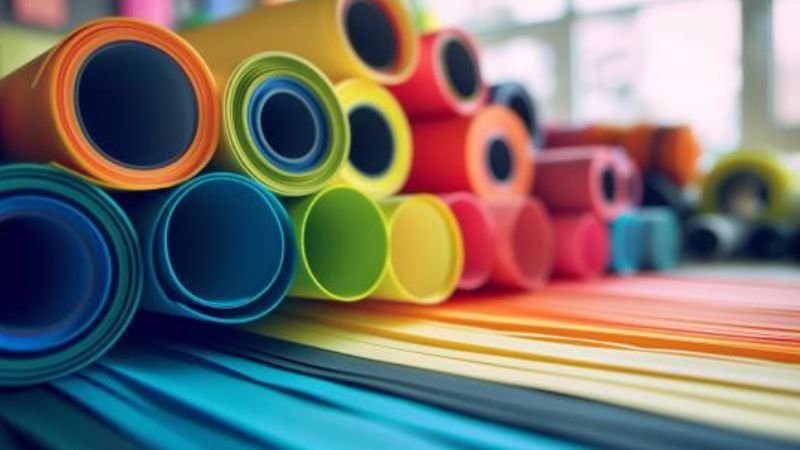When choosing materials for your products, you face a dilemma. Silicone and ABS both have unique advantages. But how do you know which one suits your needs? This decision impacts quality, cost, and performance. Without the right information, you could face delays and increased costs.
Silicone offers flexibility, durability, and eco-friendliness, while ABS provides strength and ease of manufacturing. Both materials have their own applications, making the choice dependent on specific requirements.
Understanding the differences is crucial. This will help you make an informed decision. Let’s delve deeper into Silicone vs. ABS.
What Is Silicone?
Silicone is a synthetic polymer. It’s known for its flexibility and heat resistance. This makes it ideal for various applications. Silicone can withstand extreme temperatures. It’s also non-toxic and eco-friendly. These properties make it popular in kitchenware, toys, and medical devices.
The versatility of silicone is impressive. It can be molded into various shapes. This means manufacturers can customize products easily. It’s also resistant to UV light and moisture, making it durable in outdoor applications.
What Is ABS?
ABS, or Acrylonitrile Butadiene Styrene, is a thermoplastic polymer. It’s strong, tough, and impact-resistant. These qualities make it a go-to material for automotive parts, consumer goods, and electrical enclosures.
One of ABS’s standout features is its ease of processing. It can be easily molded and machined. This efficiency translates to lower production costs. Additionally, it has a good balance of strength and flexibility.

What Are the Key Differences?
1. Durability
Silicone is exceptionally durable. It doesn’t crack or degrade under extreme conditions. This makes it suitable for long-term use.
In contrast, ABS is strong but may not withstand high temperatures as effectively. Prolonged exposure to sunlight can also lead to degradation over time.
2. Flexibility
Silicone offers unparalleled flexibility. It can stretch and return to its original shape without damage. This is crucial for applications requiring elasticity, such as baby products and medical devices.
On the other hand, ABS is rigid. While it can handle stress, it doesn’t have the same elasticity as silicone.
3. Temperature Resistance
Silicone can tolerate temperatures ranging from -60°C to 200°C. This makes it perfect for cooking utensils and bakeware.
ABS, however, has a lower temperature tolerance. It typically withstands between -20°C and 80°C. For applications involving high heat, silicone is the clear winner.
4. Eco-Friendliness
Silicone is considered more eco-friendly. It’s non-toxic and does not leach harmful chemicals. This makes it suitable for food-related applications.
Conversely, ABS is a petroleum-based product. It can release harmful substances when heated. Therefore, its eco-friendliness is less favorable compared to silicone.
5. Cost
Silicone tends to be more expensive than ABS. The manufacturing process for silicone is more complex. However, the long-term durability can offset the initial costs.
ABS is generally more affordable. This cost-effectiveness makes it popular for mass production. However, consider the long-term benefits of investing in silicone.
Which Material Should You Choose?
For Kitchenware?
Silicone is the best option. Its heat resistance and flexibility make it ideal for baking and cooking. Plus, it’s easy to clean and safe for food.
For Toys?
Again, silicone wins here. It’s non-toxic and safe for children. Its durability ensures toys last longer, even with rough handling.
For Automotive Parts?
ABS is preferable. Its strength and impact resistance are crucial for automotive applications. Additionally, its lower cost makes it suitable for mass production.
For Medical Devices?
Silicone is the top choice. Its non-toxic nature and flexibility are essential in medical applications. It can be sterilized, making it safe for use in healthcare.
How Do You Ensure Quality?
Selecting the right supplier is crucial. Look for manufacturers with experience in both materials. Ensure they use high-quality raw materials. Certifications and quality control processes are also essential.
What About Customization?
Both materials offer customization options. However, silicone allows for more intricate designs due to its flexibility. Discuss your needs with your supplier to understand what’s possible.
How Do You Test the Materials?
Conduct thorough testing. For silicone, consider heat resistance and flexibility tests. For ABS, test impact resistance and stress tolerance. Proper testing ensures that the material meets your specific requirements.
Conclusion
Choosing between silicone and ABS depends on your specific needs. Evaluate durability, flexibility, eco-friendliness, and cost. This will guide you to the best choice for your products.
Make informed decisions. The right material will enhance your product’s quality and performance.